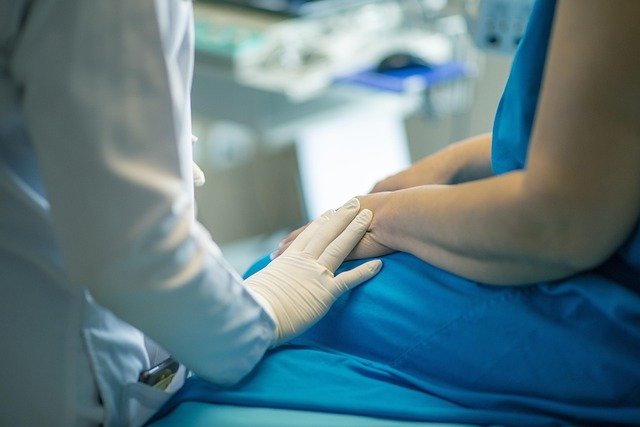Why is it Important to Visit a Vein Doctor and How to Choose One?
Varicose veins affect millions of Americans, yet many people delay seeking professional treatment until symptoms become severe. Understanding why visiting a vein doctor is important and knowing how to choose the right specialist can make the difference between effective treatment and ongoing discomfort. Vein doctors, also known as phlebologists, offer specialized expertise in diagnosing and treating venous disorders that general practitioners may not fully address.

Why is it Important to Visit a Vein Doctor?
Visiting a vein doctor becomes crucial when varicose veins progress beyond cosmetic concerns. These specialists can identify underlying venous insufficiency that causes blood to pool in leg veins, leading to swelling, pain, and potential complications. Early intervention prevents progression to more serious conditions like venous ulcers, blood clots, or chronic venous disease. Vein doctors use advanced diagnostic tools like duplex ultrasound to assess blood flow patterns and determine the most appropriate treatment approach for each patient’s specific condition.
What Do They Do During Treatment?
Vein doctors perform comprehensive evaluations that include medical history reviews, physical examinations, and diagnostic imaging. They offer modern, minimally invasive treatments such as endovenous laser therapy, radiofrequency ablation, sclerotherapy, and ambulatory phlebectomy. These procedures typically require little to no downtime compared to traditional surgical methods. The specialists also provide guidance on lifestyle modifications, compression therapy, and preventive measures to reduce the risk of future vein problems.
How to Choose a Good Vein Doctor?
Selecting the right vein doctor requires careful consideration of several factors. Look for board certification in vascular surgery, interventional radiology, or dermatology with additional phlebology training. Experience matters significantly, so inquire about the number of procedures performed annually and years of practice. Check patient reviews and before-and-after photos to gauge satisfaction rates. Ensure the practice uses modern equipment and offers multiple treatment options rather than promoting a single procedure for all cases.
What Credentials Should You Look For?
Quality vein doctors possess specific certifications and memberships in professional organizations. Board certification from the American Board of Venous and Lymphatic Medicine or related specialties demonstrates expertise. Membership in the American College of Phlebology or Society for Vascular Surgery indicates ongoing education and adherence to industry standards. Additional certifications in specific procedures like laser therapy or sclerotherapy show specialized training. Verify credentials through state medical boards and professional organization websites before scheduling consultations.
How Do Well Renowned Vein Doctors Differ?
Well renowned vein doctors and clinics distinguish themselves through exceptional patient outcomes, innovative treatment approaches, and comprehensive care models. These specialists often contribute to research, publish in medical journals, and train other physicians. They typically offer the latest treatment technologies and maintain high success rates with minimal complications. Renowned practitioners emphasize patient education, provide detailed treatment plans, and ensure thorough follow-up care. They also maintain transparent pricing structures and clear communication throughout the treatment process.
What Are the Cost Considerations for Treatment?
Varicose vein treatment costs vary significantly based on severity, treatment method, and geographic location. Insurance coverage depends on medical necessity rather than cosmetic concerns. Most insurance plans cover treatments for symptomatic varicose veins that cause pain, swelling, or ulceration. Understanding pricing structures helps patients make informed decisions about their care options.
| Treatment Type | Average Cost Range | Insurance Coverage | Recovery Time |
|---|---|---|---|
| Sclerotherapy | $300-$500 per session | Often covered if medically necessary | 1-2 days |
| Endovenous Laser Treatment | $1,500-$3,000 per leg | Usually covered for symptomatic veins | 3-5 days |
| Radiofrequency Ablation | $1,500-$2,500 per leg | Typically covered with documentation | 2-4 days |
| Ambulatory Phlebectomy | $1,000-$2,000 per leg | Covered for problematic veins | 1-2 weeks |
Prices, rates, or cost estimates mentioned in this article are based on the latest available information but may change over time. Independent research is advised before making financial decisions.
The decision to visit a vein doctor should be based on symptoms, lifestyle impact, and health concerns rather than cost alone. Professional evaluation determines the most appropriate treatment approach and helps prevent complications that could require more extensive interventions later. Choosing a qualified, experienced vein doctor ensures access to modern treatments, proper diagnosis, and comprehensive care that addresses both immediate symptoms and long-term vein health.
This article is for informational purposes only and should not be considered medical advice. Please consult a qualified healthcare professional for personalized guidance and treatment.




